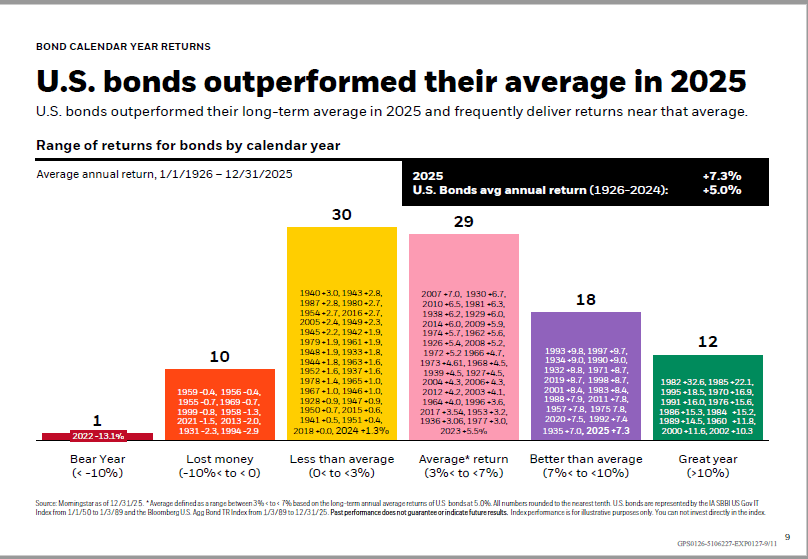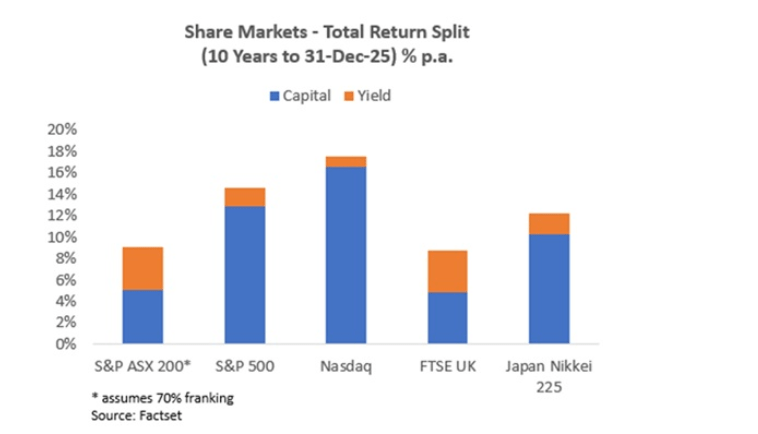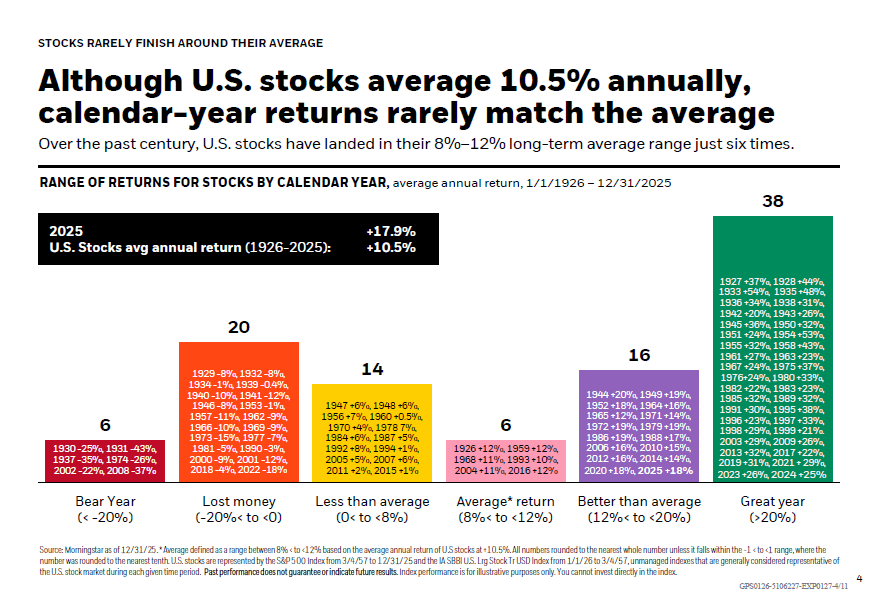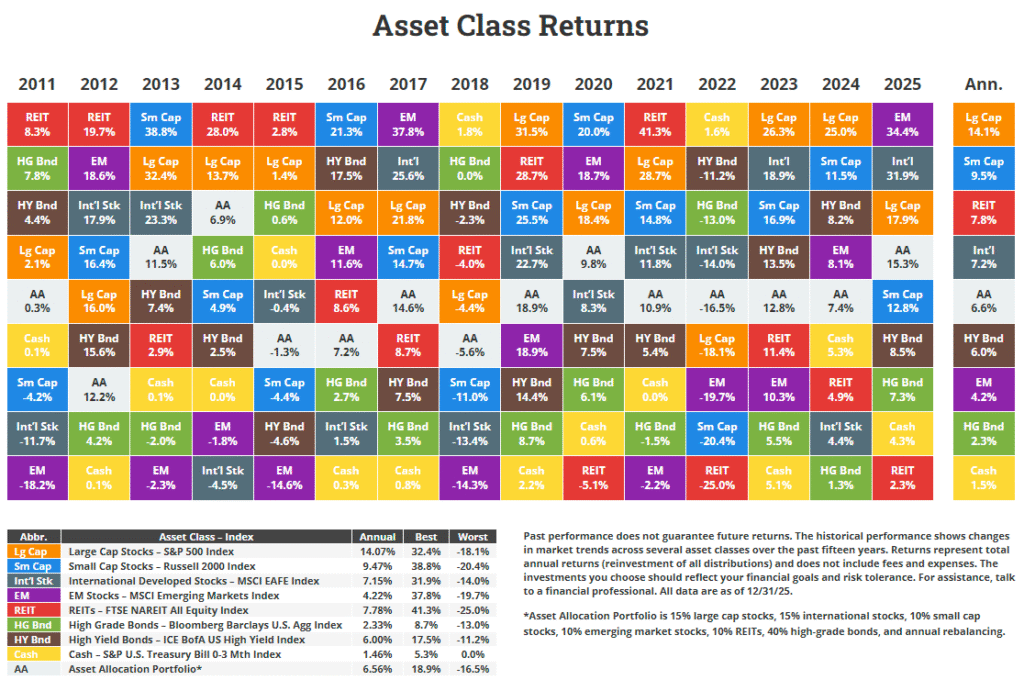Stocks perform well relative to other assets in the long run measured in years or decades. This is possible because even if there are bear markets during any given time period, they usually are shorter than bull markets. For example, over a 10 year period if a bull market leads to a 50% increase with a bear market loss of 30%, still it is positive growth of 20%. Schwab Center for Financial Research recently published an article discussing market corrections and bear markets. From the article:
But what if it really is the start of a bear market?
No bull market runs forever. While they can be scary, bear markets are a part of long-term investing and can be expected to occur periodically throughout every investor’s lifetime.
However, it’s important to keep them in perspective. Since 1966, the average bear market has lasted roughly 15 months, far shorter than the average bull market. And they often end as abruptly as they began, with a quick rebound that is very difficult to predict—a case in point is the S&P 500’s pandemic-fueled bear market in early 2020, which lasted a mere 33 days from the previous high on February 19th to the trough on March 23rd. That’s why long-term investors are usually better off staying the course and not pulling money out of the market.
Past bear markets have tended to be shorter than bull markets
Source: Schwab Center for Financial Research with data provided by Bloomberg. The market is represented by daily price returns of the S&P 500 index. Bear markets are defined as periods with cumulative declines of at least 20% from the previous peak close. Its duration is measured as the number of days from the previous peak close to the lowest close reached after it has fallen at least 20%, and includes weekends and holidays. Periods between bear markets are designated as bull markets. Indices are unmanaged, do not incur fees or expenses, and cannot be invested in directly. Past performance is no guarantee of future results.
Source: Market Correction: What Does It Mean?, Schwab
The complete article is worth a read.
The key takeaway is that long-term investors should not sell out during market corrections or bear markets. As much as violent market crashes are scary the sudden rise from bear market depths can equally be dramatic as well.
Related ETF:
- SPDR S&P 500 ETF Trust (SPY)
Disclosure: No Positions




